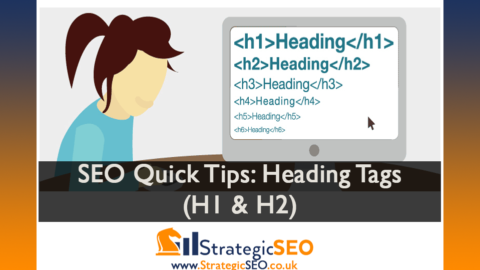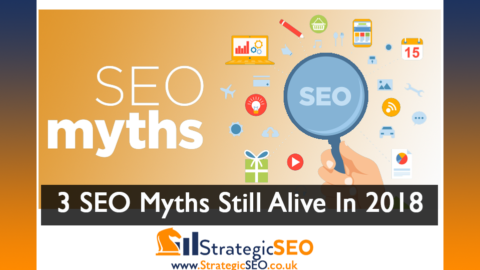Important Considerations When Writing SEO Content
Writing content that is fit for SEO (Search Engine Optimisation) purposes is no easy task. This is especially true when you take into consideration your goals, yours skills and your knowledge on SEO content copywriting.
Whilst there are many considerations that couldn’t possibly be put into one article, our experts at StrategicSEO.co.uk have detailed the most important considerations that should be at the forefront of your mind when creating SEO content for your blog or business website.
Please note: SEO Content is a science all unto itself. It can take many years to become proficient at creating worthy SEO content but every great journey begins with a single step, so don’t be scared to get started if you do not wish to outsource creation of SEO content.
-
Keyword Research
Keyword research s probably the single most important part of SEO content. It is so important that the writing of the article should not even begin until the research into keywords is extensively complete.
It is very important for you as a content creator that you research considerably exactly which keywords you are looking to focus on.
Creating an article blindly has seen many greatly written articles fall by the wayside with little to no views by the very audience they could potentially help. Why? Well it’s simple – the amount of content being created daily is at an astronomical and historical high. Search engines such as Google simply cannot analyse it all quickly & efficiently enough without discareding based on high criteria.
Think of it this way. Presented with millions of articles, Google will do its best to check that each one is not a duplicate of another piece and how well written it is grammatically. Once your SEO content has passed these checks, Google and other search engines will then rank that content based on many factors with one of the main being Keyword depth & relevance.
Now back to your article. Whilst it has passed the first two checks of not being a duplicate and being well written grammatically, it is now going to be very low rated on search engines, page 5 and beyond, simply because of the keyword related checks and relevancy.
Now ask yourself: When was the last time you searched to page 5 of Google when looking for something? It is now easy to see why articles get no views simply because of keyword research.
You can check your content isn’t showing as a duplicate using Copyscape Plagiarism Checker. -
Readability
Although readability could tie into being grammatically correct like we touched on in point 1 above, it is important to understand exactly what we mean when we use the term ‘readability’ in particular.
Many self proclaimed gurus of SEO will tell you that it is imperative that you keep your sentences short and words even shorter. They will advise you that if your article cannot be understood by someone with a below average education level then it will be penalised in terms of SEO rankings.
This is simply not true….well mostly.
Nobody aside from Google themselves know exactly what the algorithm is for ranking websites and content on their SERPs (search engine result pages). It is a mystery and for good reason, if any spam or scam sites were to find out the algorithm they could potentially rank top of search results easily which would in turn make Google obsolete as a solution.
Whilst we don’t know the exact formula, we do know through years of trial and error some key parts.
Our experts at StrategicSEO agree that readability is very important but it also needs to be taken with a pinch of salt with your target demographic being key to how simple or complex your vocabulary is.
For example: If you are writing content aimed at 14-18 year old men in the UK, then it would go without saying that you should be using less complex sentences and vocabulary. Your target demographic are young and therefore less educated which would make any article with complex structure difficult to read and understand. Google knows this and will rank you down accordingly since the article isn’t really the best alternative for it’s target demographic when compared to a similar article that uses simple words and explanations that they would find easier to understand.
Whereas If you were writing an article on physics and string theory, not only would it be borderline impossible to simplify this for the average 14 year old to understand it would also be detrimental to the target reader since they are more likely to be of a higher education since the subject matter is complex.
As you can understand, readability is all about relativity. Whilst it is good to keep sentences short and precise, it really does come down to your target demographic and your subject matter.
Take this article as a final piece of advice on this subject. Whilst the sentences are quite short the vocabulary would be of college/university education or above. Why? Because our target demographic is for SEO consultants and articulate content writers i.e. those of that education standard or above. So hey if your reading this then props to you!
You can check the readability of your content using readable.io’s handy tool, just be sure to keep your target demographic in mind. -
Sources, Hyperlinks & More Hyperlinks
Our third and final consideration is sources and hyperlinks.
It is well known that backlinks and hyperlinks are key search engine rankings. Whilst there are many things that people claim they know for sure, this one is pretty universally true. In fact Google actually has taken out a patent which actually covers this in case you were still unsure.
So what exactly are ‘Sources, Hyperlinks & More Hyperlinks’? Well take a look at the last sentence above. In it we talk briefly about how links help in terms of rankings with Google. What we also did was hyperlink to a source that confirms this, in this case it is Google’s own patent that they filed.
That’s exactly it, its a link to a reputable source that is relevant or confirms what exactly you are talking about.
It is, however, important that you are careful to not confuse sources/hyperlinks with backlinks.
Whilst hyperlinks are links within your article to sources and/or other articles that may be relevant, backlinks are essentially the reverse. Backlinks are where other articles or websites are linking to a point on your website.
Both are very important but one can be controlled more than the other when it comes to writing SEO content. We will cover backlinks in much more detail within it’s own article so for now, concentrate on the links within your articles.
We hope this has given you some valuable pointers for your next SEO content article. Remember that nobody knows the exact algorithm that Google uses so it is always important to write good quality content regardless of any strategy you choose for your SEO solution.
Outsourcing your content writing to proven professionals within the industry is always going to be an option and we for one love to help niche industries fulfil their SEO goals via content. Have a chat with one of our team to see how we can help you in this area.









